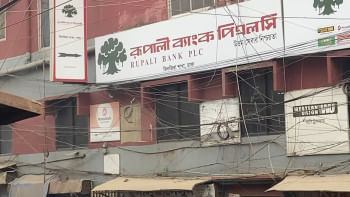What we need from OB/GYNs

When my gynaecologist diagnosed me with Polycystic Ovary Syndrome (PCOS) at the age of 18—a syndrome that affects almost seven out of every ten women—her first worry was that I would be unable to bear children, instead of addressing the fact that I would probably be gaining weight excessively. She told me that the worst thing about the weight gain was that a boy would deem me undesirable for marriage and how devastating that would be for my parents; not that it would lead to cardiac problems for me.
Sitting in front of her, I realised that I was one of many girls who had to sit and listen to doctors tell them that in the face of infertility, their lives were not valuable. When asked, girls as young as 15 responded to how they were subject to subtle sexist comments when they were diagnosed with diseases that would make them "undesirable" brides.
Anila Rahman*, 19, talks about how her doctor advised her to get married instead of assigning a healthy regimen that could help her deal with PCOS. She recalls, "When I was gaining a lot of weight because of the syndrome, the gynaecologist told my mother that if I were her daughter, she would be taking marriage into consideration. I was merely 16."
Meanwhile, Tinath Zaeba, 17, recounts her experience with endometriosis, "My doctor told me that the extreme pain I had to live through was nothing to worry about because I had to think about the fact that the possibility of infertility would mean that I would have trouble getting married and that was a bigger problem for me."
Other times, women have had to deal with doctors who refuse to perform procedures if they feel that it would hamper their ability to have children. Jannatul Ferdows, 17, remembers her experience, "I get very severe period cramps and irregularity and my mom and I were considering getting an endometrial ablation but the doctor refused to do it because I was an unmarried girl with no kids."
While infertility is a significant downside of having to live with PCOS, we often find our gynaecologists deeming it the most significant aspect because women's inability to bear children would make them unattractive. While tending to their patients, doctors often seem to forget that there are other downsides of falling sick, downsides which can often be fatal to the life of the patient or have more serious consequences than infertility.
In a time of rising misogyny, we need our doctors to remind us that we are more than just child-bearing machines and that our lives matter just as much, even if we aren't able to reproduce. We need them to tell us about the consequences of living with a disease and to assign us with regimens that could potentially help us instead of putting us down for being "less of a woman."
*Name has been changed.
Fariha is a junkie for Brooklyn Nine-Nine. Send her memes at fariha.safa@gmail.com


 For all latest news, follow The Daily Star's Google News channel.
For all latest news, follow The Daily Star's Google News channel. 



Comments